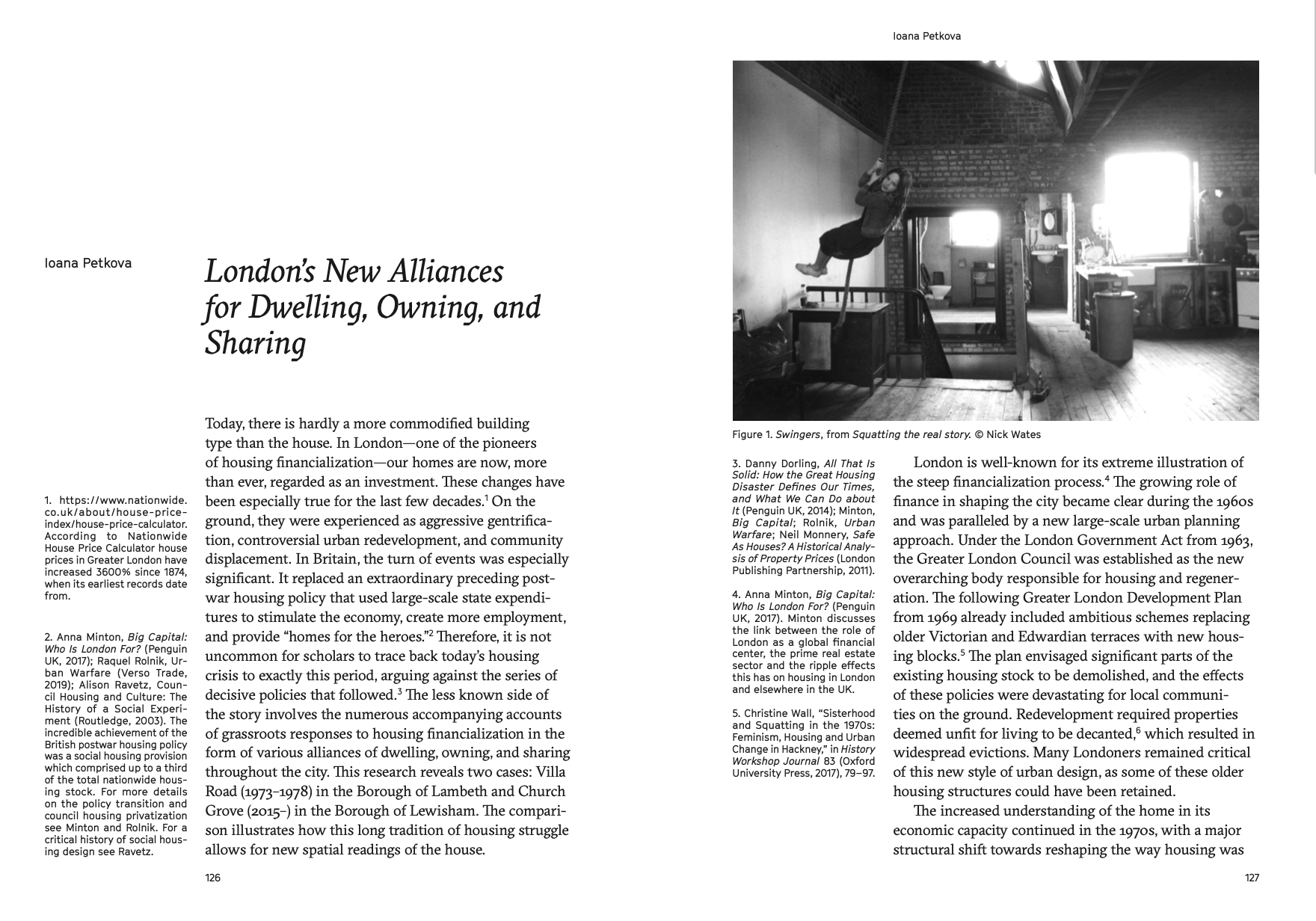Today there is hardly a more commodified building type than the house. In London – one of the pioneers of housing financialisation - our homes are now, more than ever, regarded as investment. Against this sweeping authority of finance, the dweller constitutes a new type of subject who is no longer merely an occupier, but a savvy entrepreneur.
Following the events of 2008, this new subjectivity started to shift shape and to channel grassroots collective interests. New alliances began to emerge under the guise of local community-led legal, economic and spatial experiments. Refining older concepts such as Community Land Trusts and Limited Equity Cooperatives, to name just a few, allowed for a type of counter-intervention in the housing market by creating an alternative stock, and ultimately, an alternative system of price control. The piece seeks to review these new alliances for dwelling, owning and sharing by historicising them within a longer tradition of housing struggle in the capital.
How do we begin to conceptualise the role of the architect in these emerging political spaces? The anthropologist Stephen Gudeman sees alternative exchange systems as inseparable from the communities in which they are practiced, and the process of coming together as closely related to the object of exchange. In that sense, can the house mediate the formation of collective meaning and identity in alternative housing economies? And how can we rethink the house beyond its physical spatial experience and towards a political object beheld in common?
Following the events of 2008, this new subjectivity started to shift shape and to channel grassroots collective interests. New alliances began to emerge under the guise of local community-led legal, economic and spatial experiments. Refining older concepts such as Community Land Trusts and Limited Equity Cooperatives, to name just a few, allowed for a type of counter-intervention in the housing market by creating an alternative stock, and ultimately, an alternative system of price control. The piece seeks to review these new alliances for dwelling, owning and sharing by historicising them within a longer tradition of housing struggle in the capital.
How do we begin to conceptualise the role of the architect in these emerging political spaces? The anthropologist Stephen Gudeman sees alternative exchange systems as inseparable from the communities in which they are practiced, and the process of coming together as closely related to the object of exchange. In that sense, can the house mediate the formation of collective meaning and identity in alternative housing economies? And how can we rethink the house beyond its physical spatial experience and towards a political object beheld in common?
